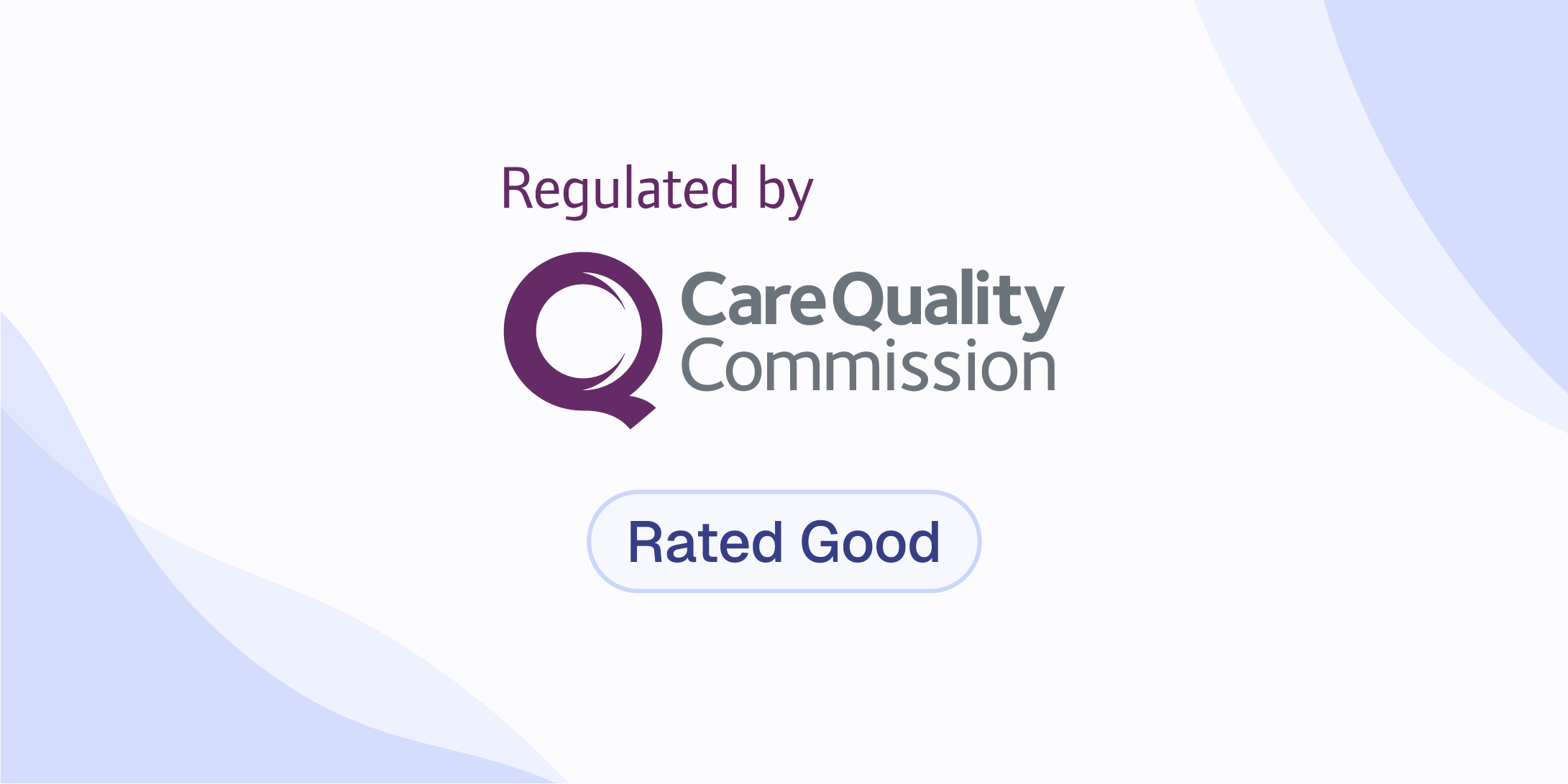Resources, guides and insights from our team
%20(4).webp)
No results for current search parameters

Q&A: How do you navigate the festive period as a neurodiverse person?
We spoke to neurodiverse members of the ProblemShared team to discuss how the festive season can affect them, and the techniques they use to manage the holidays.

Q&A: How does ADHD affect you at work?
ADHD can affect our working lives in different ways – some positive, and some negative. We spoke to members of our team diagnosed with ADHD to find out more.

ProblemShared receive “Good” rating from CQC
ProblemShared are delighted to have received a “Good” rating from the Care Quality Commission, receiving an “Outstanding” rating in the Responsive category.

Meet the team: Nicola Wiltshire, Education Navigation
We speak to Nicola Wiltshire from our Education Navigation team to discuss the unique ways neurodivergent individuals navigate education, work, and daily life.

Meet the team: Perinne Harding, Talk Therapy Coordinator
We speak to Talk Therapy Operations Coordinator Perinne Harding about her own autism and ADHD diagnoses, and the advice she'd offer to those looking to foster more inclusive workplaces.

Meet the team: Ash Norton-Peters, ADHD assessor
We spoke to ADHD practitioner Ash Norton-Peters about her journey into ADHD care and the challenges she faced during her own diagnostic process.

How to complete your adult ADHD pre-assessment forms
You will need to complete your ADHD pre-assessment forms before we can add you to our wait list. Find out how to access and complete them here.
.png)
How to complete your child’s ADHD pre-assessment forms
You will need to complete your child's ADHD pre-assessment forms before we can add them to our wait list. Find out how to access and complete them here.

How to complete your adult autism pre-assessment forms
You will need to complete your autism pre-assessment forms before we can add you to our wait list. Find out how to access and complete them here.

How to complete your child’s autism pre-assessment forms
You will need to complete your child's autism pre-assessment forms before we can add them to our wait list. Find out how to access and complete them here.

How to advocate for your child at school
It can be difficult ensuring that your child's school is accommodating their neurodivergence. In this article, we discuss how you can best advocate for them.

Signs your child might benefit from additional educational support
Do you feel as though your child may require additional support at school? In this article, we cover some of the early signs to look out for.

How to complete a one-page profile
A one-page profile is an important form that we need to receive before we can add your child to our Education Navigation pathway.

What is shared care?
Shared care is an important aspect of our ADHD service, and requires pre-agreed co-ordination and approval for your GP or local service.

What are the different forms of talk therapy?
Our directory of talk therapists specialise in a range of cutting-edge therapeutic approaches, which we document in this article.

What is dyslexia?
Dyslexia is the most common form of specific learning difficulty which can have an impact on a person's reading and spelling skills in particular.

What is dyscalculia?
Dyscalculia is a specific learning difficulty that can affect a person's ability to understand numbers, which can impact finances and time management.

What does a Right To Choose adult ADHD assessment look like?
Pursuing a diagnosis for ADHD can be a validating experience, but the thought of navigating the assessment process might feel overwhelming. In this article, we explain the ProblemShared ADHD assessment process in detail, and provide you with some tips for getting prepared.

What happens after I receive an autism or ADHD diagnosis through Right to Choose?
Our care doesn't stop with a diagnosis. We go above and beyond to ensure our clients feel held beyond the assessment process and into the future.

What does a Right to Choose adult autism assessment look like?
If you think that you may be autistic, seeking a diagnosis and support can be a life-changing experience. In this article, we explain the assessment process in detail to help you feel prepared.

What care does ProblemShared provide through Right to Choose?
The journey to getting an autism or ADHD assessment can be long and stressful. But, as an NHS Right to Choose provider, ProblemShared makes the whole process accessible and affirming.

Mental health at university
University life is exhilarating, but it can also be mentally demanding. This article focuses on the mental health challenges students might encounter during this time, and explains how talk therapy can be a valuable resource to improve your experience.

How to pick your Right to Choose provider
Choosing the right healthcare provider to oversee your neurodevelopmental assessment is a big decision. This article explains what Right to Choose is, and breaks down the ProblemShared service in detail so you can make an informed choice.

Choosing the best informant for your autism assessment
An informant plays a key role in your autism assessment, helping your assessor to understand who you are and how your autism impacts your life.

Mourning lost rituals: part 1
The trauma and loss of the last year and a half have been numbing in their collective scale but remain a deeply personal and isolating experience. We take a look at the types of grief that have emerged from this pandemic.

Mourning lost rituals: part 2
Moving beyond Freedom Day on July 19 will be a step forwards but for those grieving, the pandemic has created its own particular set of challenges. We take a look at opportunities to heal in day-to-day settings at home, within a therapy setting and what can be done at the community level as a society.

Understanding anxiety in autistic children and teenagers
The world for autistic children and teenagers can often feel like a very overwhelming place; it is therefore little surprise that autistic children experience high levels of anxiety which can have a disabling impact throughout their lives.

What happens after an autism or ADHD diagnosis through Right to Choose?
Receiving a diagnosis of attention deficit hyperactivity disorder (ADHD) or autism can be an incredibly validating and empowering experience, but it’s normal for clients and their families to also feel a bit overwhelmed. This is why we offer post-diagnostic care, to help you navigate life beyond assessment.

Neurodiversity and executive function
Executive functions are a set of cognitive processes or thinking skills that are necessary to plan and organise our actions, in order to achieve our goals.

Inclusive interviews: best practice
Job interviews can be challenging for neurodivergent minds, given their emphasis on social skills and body language. Here's how to create a more accommodating interview environment.

How to be the best informant possible for an autism assessment
Being an informant for an autism assessment is an important responsibility. In this article, we cover what you can expect and how to be the best informant possible.

How to be the best informant possible for an ADHD assessment
Being an informant for an ADHD assessment is an important responsibility. In this article, we'll cover what an informant is and what you can expect.

How to choose the best informant for an ADHD assessment
When preparing for an ADHD assessment, it’s important for you to have a reliable informant by your side.

How to get a Right to Choose referral from your GP
This article will guide you through the process of asking your GP to refer you to our service.

